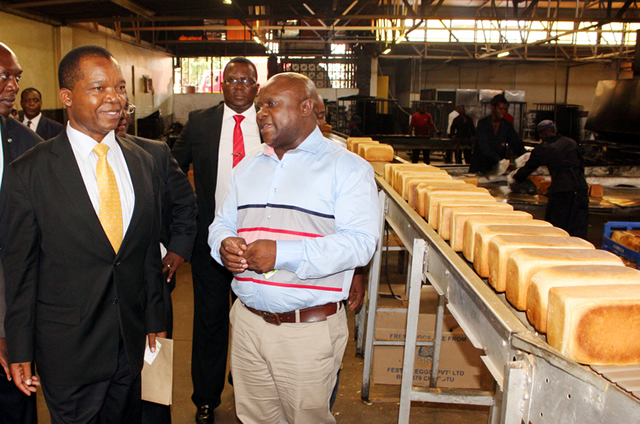Bread shortage looms in Zimbabwe
As the country’s economy continues to tank under the weight of myriad challenges, millers are now also warning of imminent bread shortages unless the government urgently releases foreign currency for wheat imports which are currently being held up in Beira, Mozambique awaiting payment.

The Grain Millers Association of Zimbabwe (Gmaz) confirmed this week that a bread crisis was looming as wheat stocks in the country had now reached critical levels.
This comes as Zimbabwe is fast-sliding back into the familiar throes of an economic crisis — which has lately seen the prices of basic commodities skyrocketing, while some goods have disappeared completely from supermarket shelves due to the country’s acute foreign currency shortages.
As a result, Gmaz general manager Lynette Veremu warned that the country’s wheat stocks now required urgent attention as they had fallen to their lowest levels since 2005.
“The available stocks are 28 028 metric tonnes … The current monthly national requirement is 38 000 metric tonnes.
“The Reserve Bank of Zimbabwe (RBZ) is yet to remit $12 450 000 to the wheat supplier, Holbud Limited of the UK …
“No remittance has been made despite commitment made by RBZ governor on 28 August 2018. Holbud has grown impatient and threatens to divert stocks currently at Beira to Mozambican and Malawian millers,” Veremu said.
“With respect, wheat and fuel are both in category one of the Reserve Bank of Zimbabwe foreign payment remittance priority list.
“Regrettably, fuel gets $21 000 000 per week religiously but wheat is not getting a paltry $12 450 000 per month for the entire monthly requirements,” she added in a letter addressed to Gmaz chairperson Tafadzwa Musarara.
Meanwhile, bread and rolls were out of stock in many shops in Harare that were visited by a Daily News crew yesterday — with shop assistants reporting significant cuts in their normal allocations from bakers.
“Self-raising flour has disappeared in many shops nationwide. Small bread bakers are stocked out.
“I strongly recommend that you alert the powers-that-be of this predicament as the country is fast plunging into severe flour and bread stock-outs in the next few days,” Veremu said in her Tuesday letter.
It has also emerged that Musarara’s attempts to negotiate for the release of part of the wheat being held in Beira was turned down last month because the government had not settled its outstanding debts on grain dating back to 2016.
“We regret to inform that our bankers will not accept the RBZ guarantee for payments for the following reasons … RBZ/GMB has an outstanding payment to us of $12 242 025, 48 for maize supplied in 2016, the payment for which was promised in June 2017 but is yet to be received.
“We had been promised several times but … payment has not been received, making our position with our bankers very bad even though we were the only company to fulfil the commitment by bringing around 300 000 metric tonnes during the drought period and avoiding a shortage of maize in the country,” Holbud said.
The company further revealed that it was also owed a further $10,7 million by Zimbabwe for fertiliser that it had delivered to the country.
“We have been supporting Zimbabwe through timely delivery of the cargo but the promises for payments are never fulfilled as you will see from the above, though we were
given to understand other importers are being paid for fertiliser.
“As mentioned to you in our offer, we can’t keep the wheat in Beira for long, as you are aware the international situation of wheat is very tight due to drought in most wheat growing areas in the world and prices are very firm,” Holbud said — adding that the failure to pay for the wheat was going to result in it offering the cargo to Mozambique and Malawi.
Zimbabwe needs an estimated 400 000 metric tonnes of wheat per year to enable bakers to meet their combined 950 000 loaves per day production.
This comes as industry is battling a deepening foreign currency crisis which is making it difficult for manufacturers to import critical raw materials on time.
This has led industry to warn of further price hikes and shortages of basic consumer goods. Daily News.






